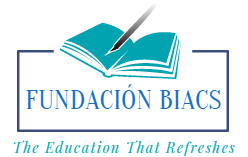In today’s environment, cultural intelligence is a necessary talent. Because we work and live in a multicultural environment, we need to acquire a diverse range of viewpoints, information, and abilities in order to succeed. You must be willing to communicate and collaborate with people from all backgrounds, ethnicities, and cultures. It is no longer optional to learn about different cultures. It is required in order to learn, comprehend, and effectively cope with a variety of circumstances. Cultural intelligence may be developed in a variety of methods in the workplace.
Table of Contents
What is CQ
Cultural intelligence is often referred to as Cultural Quotient (CQ), which is developed from an intelligence quotient (IQ). Cq assessment, according to Earley and Ang, is the capacity to adjust to new cultural circumstances. People with a high CQ aren’t assessing company culture in every field. Instead, they have the ability to confidently enter unfamiliar surroundings and make educated decisions based on observations and data.
These individuals excel in deciphering unusual or ambiguous conduct. They are able to detect the impact of a given culture by recognizing shared influences among certain groups.
Benefits of Cultural Intelligence
- To begin, it enables you to collaborate effectively with people who are different from you. CQ can help you avoid cultural blunders that can cause humiliation and perhaps derail a project or contract, whether you’re working overseas or managing a culturally diverse team at home.
- Professionals with a high cultural intelligence training are more effective on worldwide assignments, according to research, since they adjust more quickly to living and working in different cultures.
- High CQ is useful when you need to create relationships with a new set of people, acclimate to the way another department operates, or workplace culture consulting in a cross-functional team, regardless of where you are located. CQ also includes a number of transferrable talents, such as self-reflection, open-mindedness, and problem-solving ability.
How to Enhance Cultural Intelligence
Here are six suggestions for enhancing cultural intelligence.
- To build cultural intelligence assessment, use cultural profiling tools such as Country Navigator. Develop a knowledge of how to differentiate yourself from the cultures you deal with on a daily basis by becoming more conscious of your own working habits. Learn how to deal with differences and adjust for success with these tips and guidance.
- Find a common ground that allows you to connect with people from different cultures and helps you understand them better. It’s an excellent strategy for forming a mutual relationship since it fosters trust and respect while also removing communication obstacles.
- Stereotyping is a frequent habit that may help you create a profile of someone else, but it can also be hazardous since it can lead to forming unfavorable and incorrect conclusions. What you must keep in mind is that people from all cultures have their own customs and beliefs, which may differ from yours. Instead of judging a person from a cultural standpoint, try to comprehend and judge him on his own merits.
- When opting to build cultural intelligence, it’s necessary to think about awareness and acceptance. Being attentive allows you to be more conscious of individuals from various cultures’ behaviors and habits. Acceptance of their cultural customs demonstrates your understanding of who they are and how you view them.
- Keep an open mind when it comes to culture and be interested. You may always do this by checking the internet or speaking with coworkers. You could learn some intriguing information that will help you cope with individuals from other cultures.
- Trying diverse meals from other cultures is also a terrific approach to have a better understanding of other people. This is also a fantastic opportunity to meet new people and form lasting friendships.
How is CQ Measured
Assessing a person’s CQ in terms of four unique CQ skills is the first step in improving their CQ. The four talents are similar to those assessed by emotional and social intelligence tests, but they are particular to cultural problems. They are as follows:
CQ Drive (motivation)
CQ The person’s desire and confidence in working successfully in culturally varied environments is referred to as drive (motivation). According to our research, executives who are unwilling to take on the challenges of multicultural work are more likely to fail.
CQ Knowledge (cognition)
CQ The person’s understanding of how civilizations are similar and distinct (cognition). The goal isn’t to become an expert on every culture, but to grasp fundamental cultural distinctions and their implications for everyday business.
CQ Strategy (meta-cognition)
CQ Strategy (meta-cognition) is the process through which a person interprets culturally different events. When forming judgments about one’s own or others’ mental processes, this comes into play. It makes efficient planning feasible in the face of cultural disparities.
CQ Action (behavior)
CQ The ability of a person to adjust his or her conduct to other cultures is known as action (behavior). It necessitates a versatile repertoire of replies that can be tailored to varied contexts while keeping genuine to oneself.


